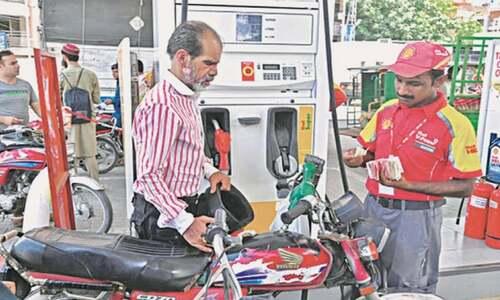President Donald Trump’s sweeping crackdown on undocumented immigrants will strain an already tight US job market, with one study suggesting that removing all of them would cost the economy as much as $5tr over 10 years.
That represents the contribution of the millions of unauthorised workers to the world’s largest economy, about 3pc of private-sector gross domestic product, according to a recent paper issued by the National Bureau of Economic Research. At an average of $500bn in output a year, removing all such immigrants would be like lopping off the equivalent of Massachusetts from the US economy, said study co-author Francesc Ortega.
“It’s a big number,” said Ortega, an economics professor at Queens College in New York, who published the study in November with colleague Ryan Edwards. “Undocumented workers are present across the whole economy, even if they are heavily concentrated in sectors such as agriculture, construction and hospitality.”
At an average of $500bn in output a year, removing all such immigrants would be like lopping off the equivalent of Massachusetts from the US economy
Any undocumented immigrant may now be deported, according to a pair of memos issued last Tuesday by the Department of Homeland Security implementing Trump’s executive orders. In the memos, the administration pledged to hire 15,000 more border patrol and immigration agents and begin building a wall on the Mexican border.
There were about 8m unauthorised immigrants in the US working or looking for work in 2014, with California, Texas and New York accounting for the largest share of the workforce, according to Pew Research Centre estimates. Most of them are likely to be of working age, which makes them about 5pc of the US labour force and 3.5pc of the total US population. Unauthorised immigrants include those who enter the country without legal permission and those who overstay their visas.
Following through on plans to deport undocumented workers would hit industries that already complain of worker shortages, said Ethan Harris, Bank of America Merrill Lynch’s head of global economics in New York.
The jobless rate in the US was 4.8pc in January, a level some economists consider to be full employment.
“The challenge is particularly high now because the labour market has tightened up not just overall but in areas in which you would think undocumented immigrants would be important, so that means that it’s going to be hard to fill these jobs if you deport these employees,” Harris said. “You have to think about indirect effects when you disrupt production in industries in which they’re a critical part of getting things done. So there’s a transition cost, as well as the cost of a reduced labour force.”
Harris estimates that for every 1m fewer workers in the economy, GDP would be reduced by about 0.5pc. That’s the equivalent of $94bn, based on the annualised pace of $18.9tr in fourth-quarter GDP.
The Edwards-Ortega research was funded by the Centre for American Progress, a Democratic-leaning policy group. White House spokesman Michael Short cited the study’s funding from CAP in dismissing the report as ‘bogus’ without offering specific challenges to the findings. He referred to a 2013 report from the Federation for American Immigration Reform that estimates the annual “costs of illegal immigration at the federal, state and local level to be about $113bn.”
Trump ran for president on promises to crack down on undocumented immigrants, some of whom he has described as competing with lawful US residents for jobs and contributing to rising crime in some cities. He has said that he would focus deportation efforts on undocumented immigrants who commit crimes in the US, but immigration advocates say that the government has already targeted law-abiding people who are in the country without documentation, including some with children or other family members who are citizens.
The US “no longer will exempt classes or categories of removable aliens from potential enforcement,” Homeland Security Secretary John Kelly said in the memos.
“When we started this study last summer, our interest was to study the economic role of undocumented immigrants,” Ortega said. “Little did we know that, a few months later, this could become a serious policy question.”
—Toluse Olorunnipa contributed
— Bloomberg/The Washington Post Service
Published in Dawn, Business & Finance weekly, February 27th, 2017













































